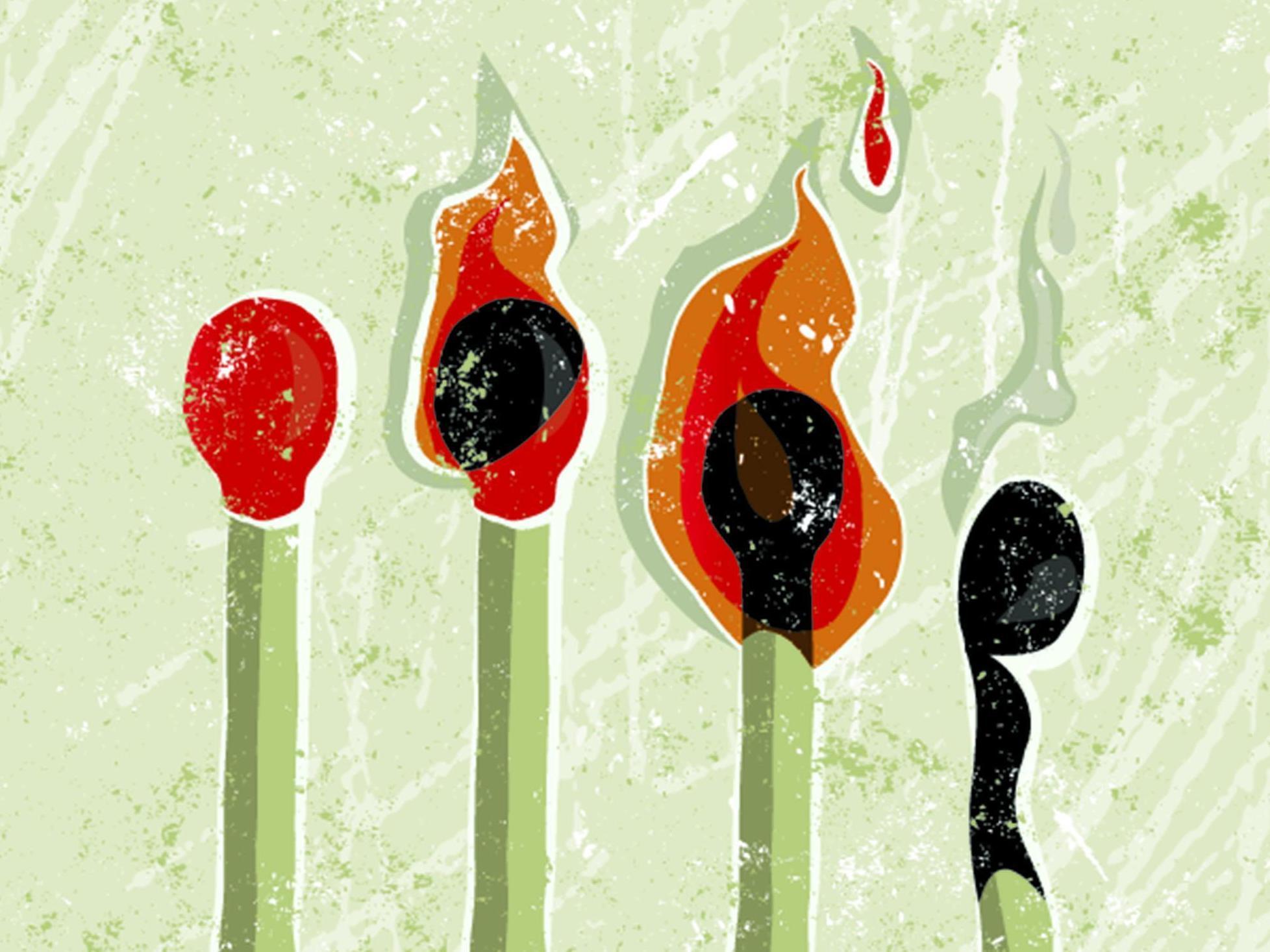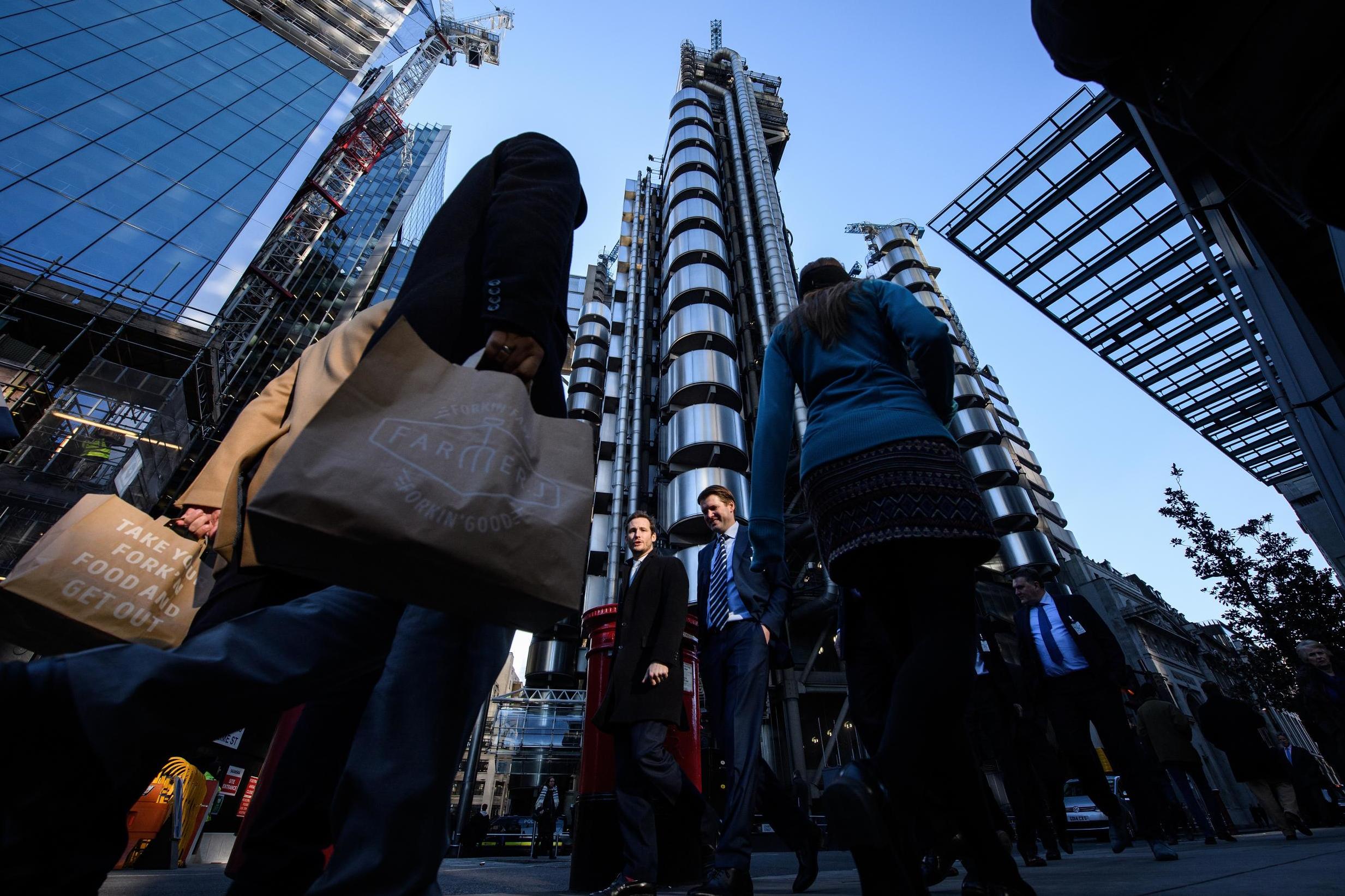The Independent's journalism is supported by our readers. When you purchase through links on our site, we may earn commission.
Millennials are burning out – it’s time to practise the art of doing nothing
The constant urge to increase productivity in every aspect of our lives can be draining. It’s time for a reassessment before we become a generation of stressed out individuals, says Steven Johnson

Your support helps us to tell the story
From reproductive rights to climate change to Big Tech, The Independent is on the ground when the story is developing. Whether it's investigating the financials of Elon Musk's pro-Trump PAC or producing our latest documentary, 'The A Word', which shines a light on the American women fighting for reproductive rights, we know how important it is to parse out the facts from the messaging.
At such a critical moment in US history, we need reporters on the ground. Your donation allows us to keep sending journalists to speak to both sides of the story.
The Independent is trusted by Americans across the entire political spectrum. And unlike many other quality news outlets, we choose not to lock Americans out of our reporting and analysis with paywalls. We believe quality journalism should be available to everyone, paid for by those who can afford it.
Your support makes all the difference.Anne Helen Petersen knows you’re tired. In recent weeks, she has been asking people about their feelings towards leisure, work and burnout. And she was struck by how few of them can find even half an hour of free time – true leisure that isn’t compelled by someone or something else.
“Is taking your kids to their football game leisure?” Petersen says. What about cleaning? One gig worker, she says, told her his only leisure was his half-hour commute home – followed by, if he’s lucky, 15 minutes on the couch to stare at the ceiling.
The creep of work into life has erased true free time, says Petersen, a senior culture writer at BuzzFeed who is turning her popular 2019 essay on millennial burnout into a book. But so has the desire to make all leisure time productive in some way, she says – even if it’s as simple as doing something worth posting to Instagram.
The feeling that overwork is wearing on our mental wellbeing isn’t new, of course. A wave of writers and researchers has pushed for a conscious retreat from constant work and connection. But Petersen is one of a few recent writers to more critically examine the past decade’s countervailing trends in work and rest, and how digital work has supercharged them. These writers are reminding us that an obsession with productivity can be counterproductive. And they’re suggesting we rethink the concept of productivity altogether.
Productivity, measured most simply by the government as output per hour, became a national preoccupation following the recession, as growth in productivity and wages (already sluggish) slowed. Meanwhile, work and life turned more digital.
Bloggers promised “mindhacking” your way to smarter work. Techies charted the day’s minutes in spreadsheets. The flowering of social platforms and smartphones promised seamless work and constant connection. By 2016, about a quarter of Americans earned money selling their labour or possessions through the digital “platform economy,” according to the Pew Research Center.
It wasn’t long before people worried that all the focus on productivity was having the opposite effect. Trendy ways to simplify followed close behind, offering “digital detox” retreats and decluttering programmes for your mind and home.
More recently, businesses around the world have started tinkering with a four-day workweek (US businesses have been slower to try it). And productivity experts are trumpeting the importance of mental rest and reflection, especially in the digital age.
For her book Off the Clock: Feel Less Busy While Getting More Done, speaker and author Laura Vanderkam asked more than 900 people to record time diaries over a given Monday. People who reported a “more abundant relationship with time” – meaning they felt they had progressed towards a goal, or spent time in ways that made them happy – were more likely to do something reflective, like meditating or journaling. They checked their phones less often. They’d sooner hang out with friends than watch TV.
“It’s not wasting time to engage in leisure activities that are rejuvenating to you,” Vanderkam says. “It’s a false dichotomy.”
True productivity may look more like maintenance than creation
That holds true at the most fundamental level – the brain. Nancy C Andreasen, chair of psychiatry at the University of Iowa Carver College of Medicine, coined the term Rest (random episodic silent thought) in the 1990s to describe the high neural activity marking states of relaxation and free association.
She’s now studying a small group of high-performing creatives – people at the top of their fields in the arts, sciences and mathematics. While the study is ongoing, she says, for many of them, “letting their mind run freely is a big resource for their creativity”. Focused, sequential work is different from the “randomness of thought that occurs during rest”, Andreasen says. But in general, focused work relies on rest and free association. “That’s the resource for the ideas that you’re going to express when you’re doing the productive component of the work,” she says.
Petersen tries to keep those principles in mind. She’s cut back on things like podcasts, to let herself think uninterrupted. But taking a break, of course, is easier said than done.

“I think all creative workers have heard that if you need to give your mind rest, you should go on a walk,” she says. “But it runs counter to an equally strong message that you should be working at all times.”
She and other younger writers are highlighting why millennials – who in 2016 became the largest share of the US workforce – have become sharper critics of the idea of more, and more efficient, work.
Faddish tips on maximising free time, these writers note, are hardly helpful to people who need to work two or three jobs to get by. Decluttering can seem risky to people who can’t afford to repurchase items down the line. And some efforts to step back can be superficial if they don’t allow a more fundamental kind of rest.
Jenny Odell, author of How to Do Nothing: Resisting the Attention Economy, has argued the fixation with productivity has warped our sense of fulfillment and growth. “The point of doing nothing, as I define it, isn’t to return to work refreshed and ready to be more productive,” Odell writes, “but rather to question what we currently perceive as productive.”
The common understanding of productivity crowds out the practices that actually make people and communities well, Odell writes. True productivity may look more like maintenance than creation. Practices based on solitude and observation – such as birdwatching, which looks like inaction but hones attention – “can help restore individuals who can then help restore communities,” she writes.
That might seem like a “self-indulgent luxury” for people with time on their hands, she acknowledges. But “just because this right is denied to many people,” she writes, “doesn’t make it any less of a right or any less important.”
© Washington Post
Join our commenting forum
Join thought-provoking conversations, follow other Independent readers and see their replies
Comments